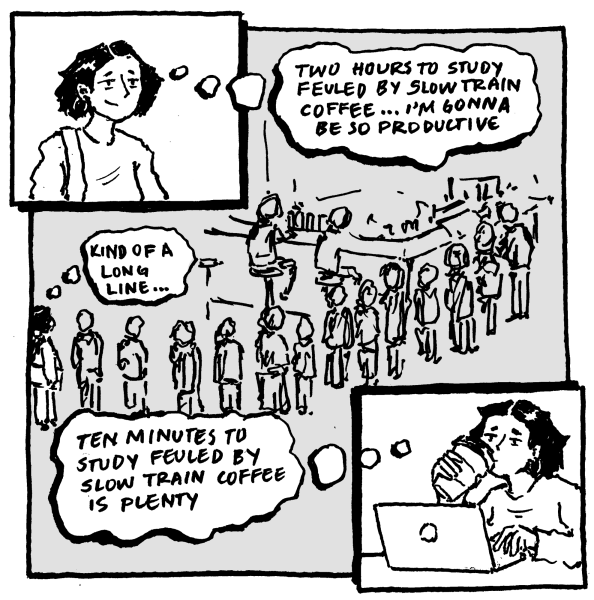We Need To Fix Course Registration — Here’s How
Course registration is obviously not the highlight of anybody’s college experience — and it’s especially bad at Oberlin. Course selection starts with a mess of overloaded but mandatory courses thanks to a large number of highly specific requirements. Faculty replace prerequisites with consent barriers so that qualified students are held at the mercy of overworked professors’ ability to respond to emails.
Then, when students are unable to get into the courses they want because of consent barriers, they are forced to enroll in courses they aren’t actually going to take. That forces students with later registration times to enroll in classes they don’t plan to take, ultimately occupying spots in classes that other students actually want to be in. There’s so little actual registration going on that this disaster can’t even reasonably be called course registration.
Theoretically, the consent requirement is a perfectly decent idea. Using the system to let in otherwise qualified or passionate students who don’t meet prerequisites would allow students to challenge themselves in classes they’re excited about.
However, instead of serving this purpose, consent barriers are frequently used by professors to simply replace prerequisites. Now, instead of a course being open only to qualified students who have put in the work, they’re closed to everyone, often until after registration has ended — leaving students in limbo until add/drop period.
Sorting out an entire schedule while classes are starting isn’t just extremely stressful — it’s also costing students of all income backgrounds every year, potentially up to hundreds of dollars. At colleges and universities across the country, the average student spends $1,200 on textbooks annually, and although Oberlin students can sometimes get support with buying textbooks through resources such as the Multicultural Resource Center and the Book Co-op, most of these costs are mostly directly incurred by students and their families.
Although that figure is astonishing, it should not catch anyone by surprise. Textbooks are priced according to demand, which is extremely high during Oberlin’s add/drop period. Students could buy their books ahead of time for a fraction of the price — but only if they can secure spots in classes they’ll actually take without being locked out by consent barriers.
If we create a policy banning the use of consent barriers as a replacement for prerequisites and on courses with no prerequisites, students will get to register for courses they actually want to take during registration. With one quick and easy policy change, we could potentially save students hundreds of dollars every year — an amount that makes a huge difference to low-income individuals.
To fully smooth out the registration process, however, we need to get to the root of the problem. Demand for many courses is just too high for everybody to get in, and graduation requirements and strict sets of requirements for many majors, minors, and concentrations are inflating demand for certain courses.
The Natural Science and Mathematics requirement is an example of this. Every student has to complete two courses in the area despite a shortage of STEM classes that are accessible to non-STEM majors. In essence, every non-STEM major is trying to get into the same small number of classes.
In keeping with the nature of Oberlin’s liberal arts education, we need to broaden our definition of requirements like Natural Sciences and Mathematics and create more courses to fit our community’s needs instead of forcing students through a requirement bottleneck. Intermediate Microeconomics, for example, is a heavily mathematics-based class, but does not count for the Natural Science & Mathematics requirement, and other courses have a similar story.
Broadening our graduation requirements is an essential start, but there’s more that needs to be done. We need to eliminate course-specific major requirements, open up cross-listing between departments, and expand which courses can be applied to major and graduation requirements. Once we do that, students will be able to take the courses they’re passionate about instead of being crowded out by other students who were forced into extreme requirements. If we enact these reforms, far fewer students will be forced out of classes they can’t graduate without.
Taking steps towards fixing Oberlin’s course registration system would be relatively simple. One major step we need to take is restricting the use of consent barriers where they detract from our community, and instead open up our course requirements to reflect the broad and multidisciplinary nature of a liberal arts education. Two policy changes combined have the potential to not only make the course registration process less stressful for everyone, but also save students hundreds of dollars.
We need to implement these reforms as soon as we can, or at least start the conversation around reforming registration. Course registration could become a time when students actually register for their courses that they want to be in.



